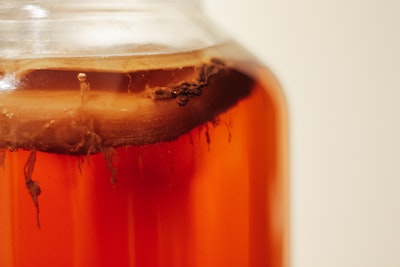 Welcome back to our blog series, From the Classroom, where we take a peek into some of the classes at ACTCM. This week Nutrition instructor, Austin Gresham L.Ac., discusses digestive health and the best supplements for smooth digestion.
Welcome back to our blog series, From the Classroom, where we take a peek into some of the classes at ACTCM. This week Nutrition instructor, Austin Gresham L.Ac., discusses digestive health and the best supplements for smooth digestion.
Question: Prebiotics vs. Probiotics – What are they and how do they keep us healthy?
Over the last decade the medical community has worked to change our relationship with our microbial cohabitants (bacteria, protozoa, fungi, etc). Recognizing their massive influence on our digestion, immunity, mood, and skin has led to wide reaching changes including how doctors prescribe antibiotics, approach pregnancy and birth, and treat digestive disorders.
Most of us are familiar with Probiotics, a collection of bacteria that have beneficial effects on the human body. Probiotics can be found at most grocery stores in a variety of forms. The benefits of probiotics can be broad-ranged or very specific and the applications are increasing as researchers and companies are discovering how different microbes affect different populations.
Prebiotics are a fibrous, plant-based material that humans can’t digest but beneficial bacteria in the gut love. The bacteria consume the prebiotics and release a variety of substances including a powerhouse short chain fatty acid called butyrate. This fatty acid is a desired source of energy for intestinal cells that helps resist cancer and increase the production of mucin, a gooey substance that lines the intestinal tract.

In Traditional Chinese Medicine, prebiotics are a Yin nourishing substance. The mucin that is created as a result of a high prebiotic diet is not only protective but cooling, moistening, and therapeutic for inflammatory bowel and colitis. A healthy lining and a happy community of butyrate-producing bacteria has beneficial effects beyond the gut.
TCM connects the large intestine with the skin and immune function. A healthy cooling inflammation in the bowel also cools inflammation in the skin and strengthens the immune system overall.
About Austin Gresham
Austin Gresham sees clients at his San Francisco location within Dolores Park Chiropractic and in Oakland at East West Approach. His passion for integrative medicine has led him to specialize in pain management and digestive health, particularly conditions related to the microbiome. For more information, visit his website at www.greshamlac.com.
Content and Video Editing by Rachele Lam
Rachele Lam is a second year Doctorate of Acupuncture and Chinese Medicine student at ACTCM with a background in marketing and design. Outside of school, she enjoys making tinctures and topicals in her kitchen, trying new recipes, and dancing.
Click here to view upcoming ACTCM events.
About American College of Traditional Chinese Medicine
American College of Traditional Chinese Medicine (ACTCM) has provided affordable, quality health care to the public and trained professionals in acupuncture, massage and Chinese medicine since 1980. In addition to its graduate curriculum, ACTCM offers continuing education, public education, community outreach and clinical services in acupuncture and herbal medicine. ACTCM has been the recipient of many awards for its curriculum, faculty and clinic, and has been voted “Best of the Bay” by both the San Francisco Weekly and the San Francisco Bay Guardian. ACTCM is accredited by the Accreditation Commission for Acupuncture and Oriental Medicine and is a private, nonprofit, 501(c)(3) tax-exempt organization